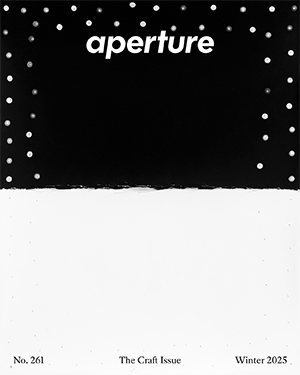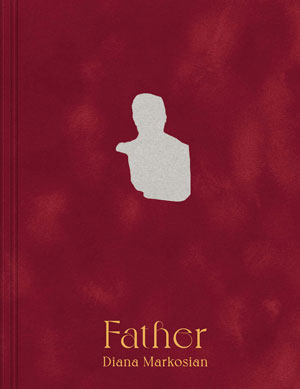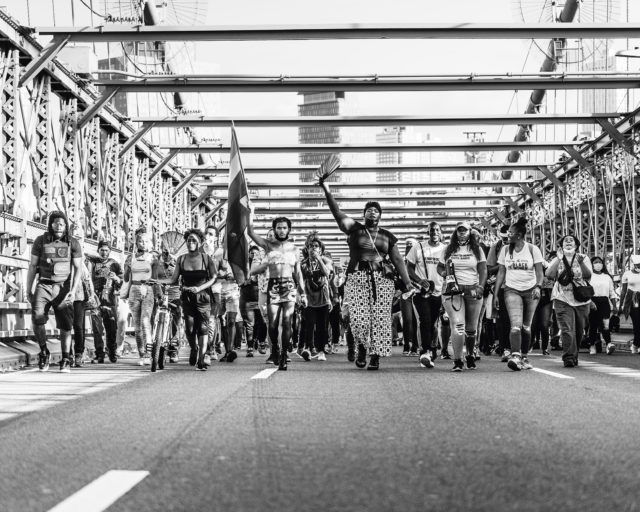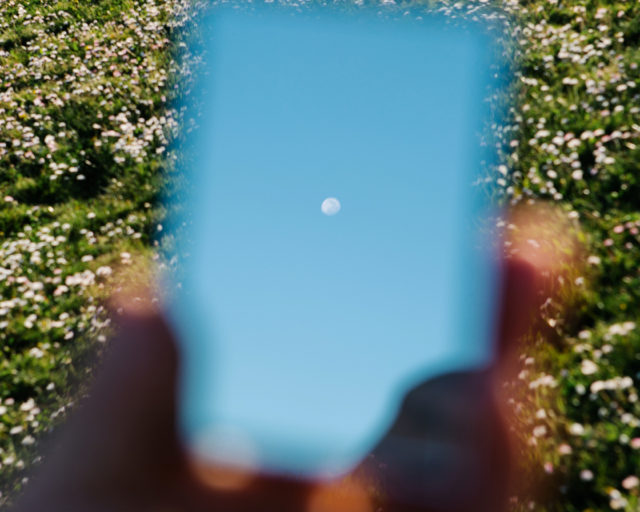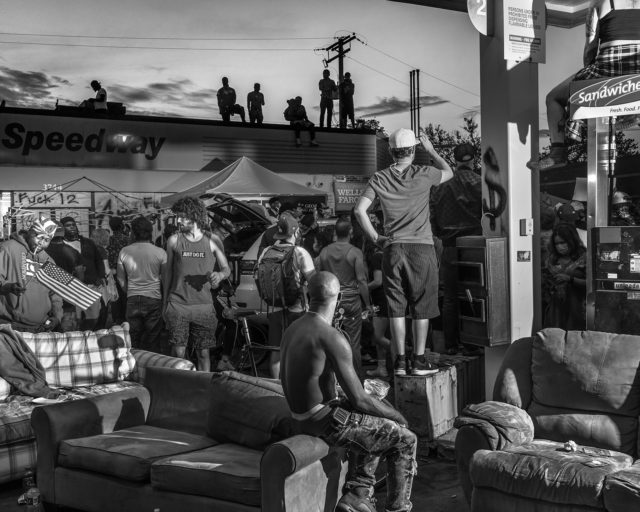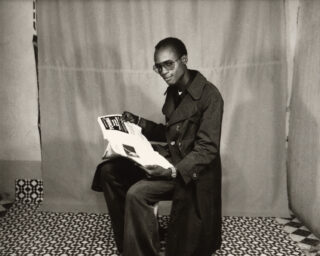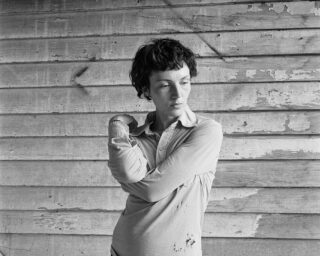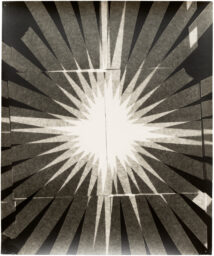Why Photo Editors Need to Hire Black Photographers Every Day
When New York Magazine chose a white conflict photographer’s image for the cover of their June 8, 2020, issue, there was an uproar on Instagram. The magazine’s outspoken (white) art critic Jerry Saltz called the cover “tremendous.” But Lindsay Peoples Wagner, editor in chief at Teen Vogue, commented, “sad that you hardly ever hire black photographers to shoot covers and STILL didn’t this week of all weeks.”
This was not an isolated incident. National Geographic and Vanity Fair both hired prominent white photographers for protest coverage, demonstrating the systemic issue of whiteness throughout the photography industry. When a Google spreadsheet of Black photographers was circulating widely, why would photo editors make this choice?
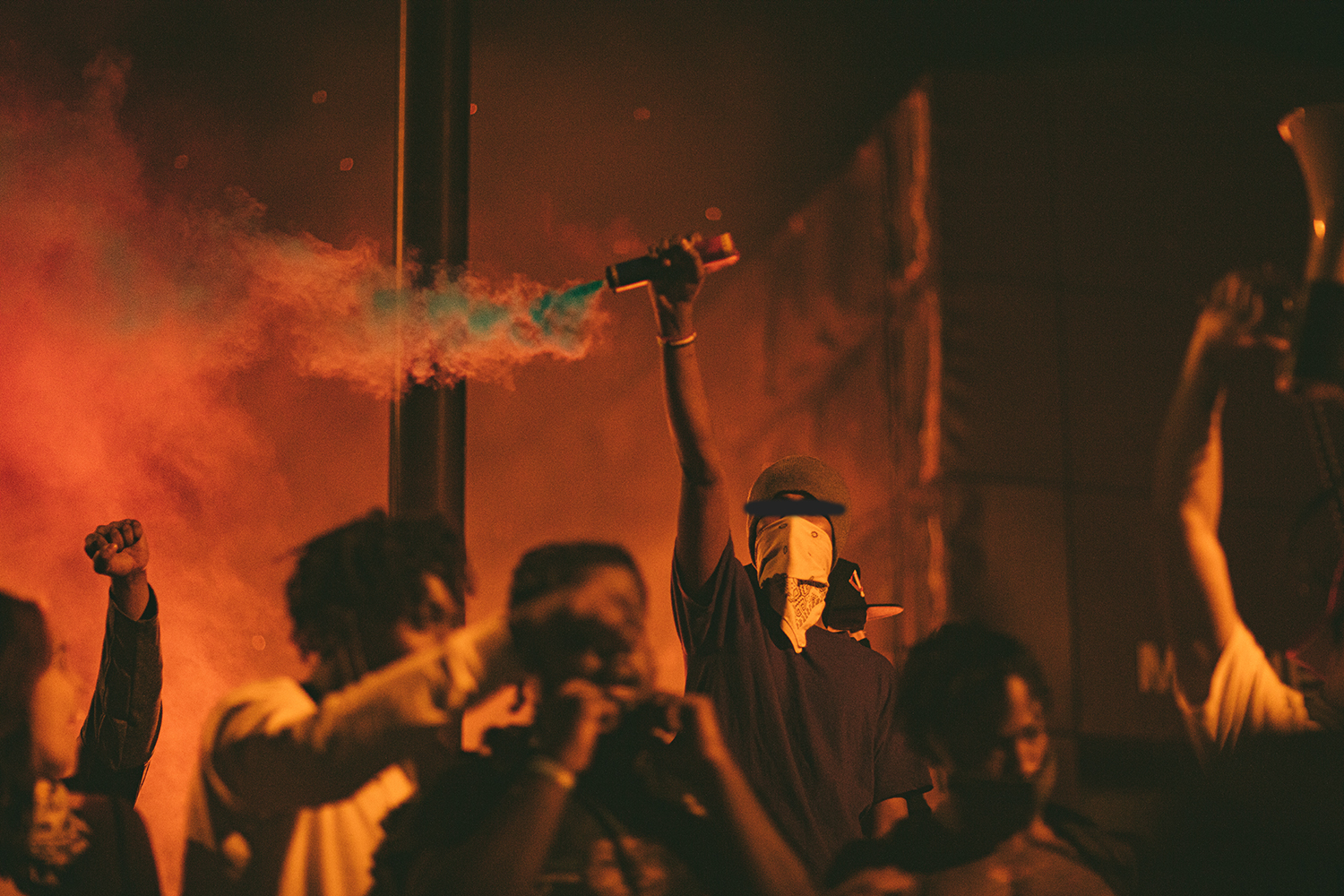
Courtesy the artist
As Danielle Scruggs, a Chicago-based photo editor at Vox and board member at Authority Collective, told me, “The whole reason why there is so much racism, sexism, ageism, classism in the industry is because all of that exists in society.” Non-profits, media outlets, museums, and photography schools attempt to alleviate this contradiction by elevating “diverse” photographers, giving them grants or putting them on diversity panels. But who actually benefits from those panels? How does a grant or scholarship fix a systemic failure? And who benefits from highlighting Black photographers only during a time of crisis?
I recently spoke with Scruggs and three other Black photo editors and photographers about covering this moment and what needs to change: Lynsey Weatherspoon, a photographer based in Atlanta; Wale Agboola, a photographer based in Minneapolis; and Brent Lewis, photo editor at the New York Times and cofounder of Diversify Photo. They talked about the inherent subjectivity of photojournalism, the racist distribution of power and opportunity in the industry, and their demands for a sustained commitment to make photography more Black, far into the future.
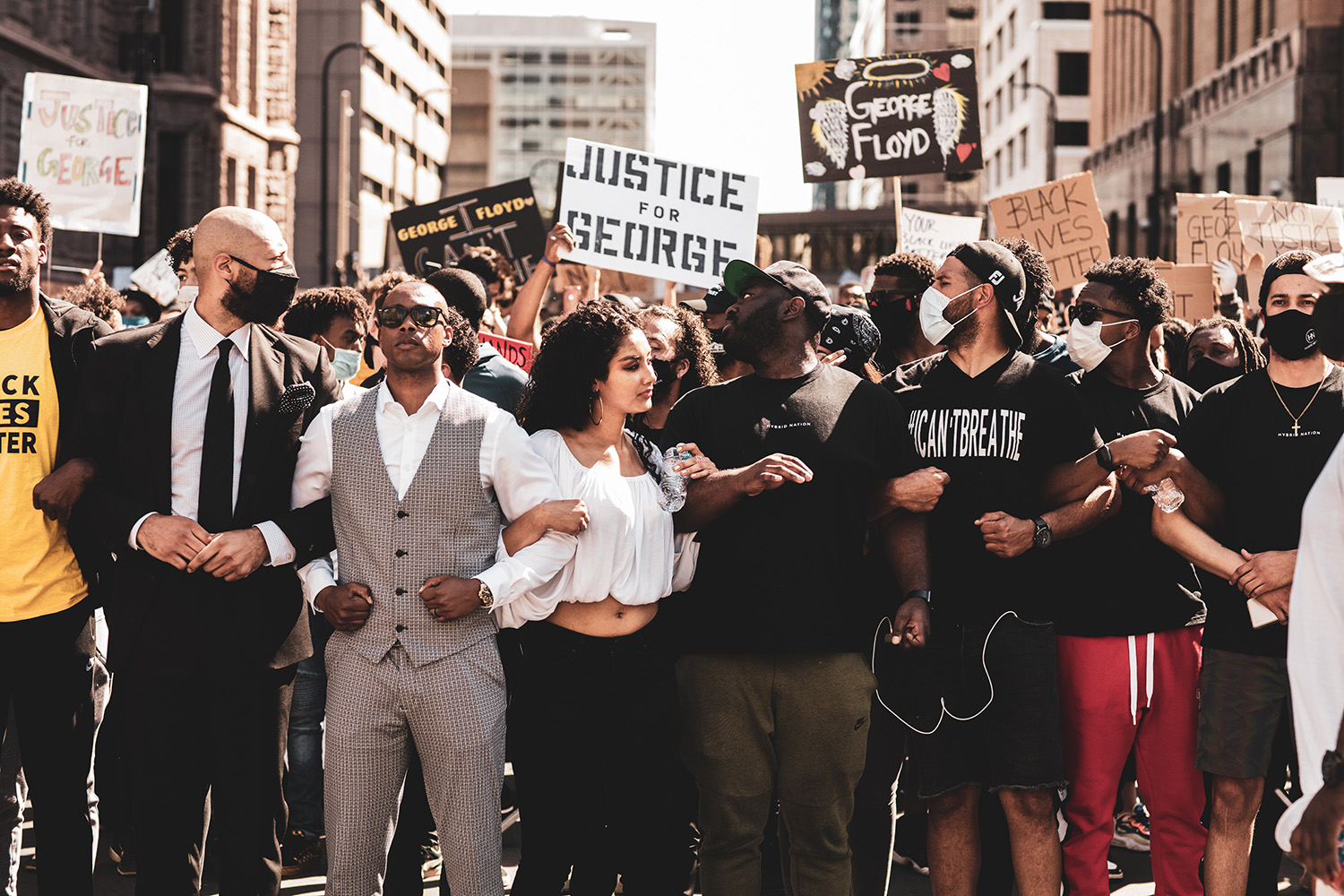
Courtesy the artist
Will Matsuda: Why are you choosing to photograph the protests?
Wale Agboola: As Black people, we have to be able to tell the stories how we want. After I found out about George Floyd’s death, I couldn’t sleep. At 2 a.m., I walked down to Cup Foods [the site of George Floyd’s murder] to see what was happening. When I got there, I broke down. A friend of mine told me that I had to get to the Third Precinct right now. “Everything is on fire,” he said.
So I went and saw Black pain. Fear. People who were angry. They wanted answers. I wanted to do my best and tell the story the way I see it. The way I’m feeling that pain. When I saw the video of George Floyd, I lost a side of me that was peaceful. It turned into anger. I channeled that feeling into my photos.
Lynsey Weatherspoon: I’m originally from Birmingham, Alabama, one of the epicenters of the Civil Rights Movement. I needed to see what was going on, and I needed to walk in solidarity. Photographers have different voices, and I wanted mine to be heard.
Matsuda: What do you think about the current conversation about who should photograph these protests?
Danielle Scruggs: I’m glad we are having these conversations in a really explicit industry-wide way. Sometimes, it feels like I’ve been screaming into the void [laughs]. We need to hire more Black photographers. We need to hire more Black photo editors. Not only to cover things like protests and uprisings, and things that only pertain to Black communities. We need more Black photographers doing food stories. More Black photographers doing culture stories and fashion stories. It shouldn’t be just for hard news; it should be for everything. It should be across the board.
It shouldn’t be a scramble for people to hire Black photographers and photo editors. That should be something ingrained in this industry, and it’s not. There’s especially a problem with how overwhelmingly white leadership positions are in the industry. If you only see predominantly white men crafting visual narratives about everything, that becomes a really big problem. It works right now if you believe in systemic inequality.
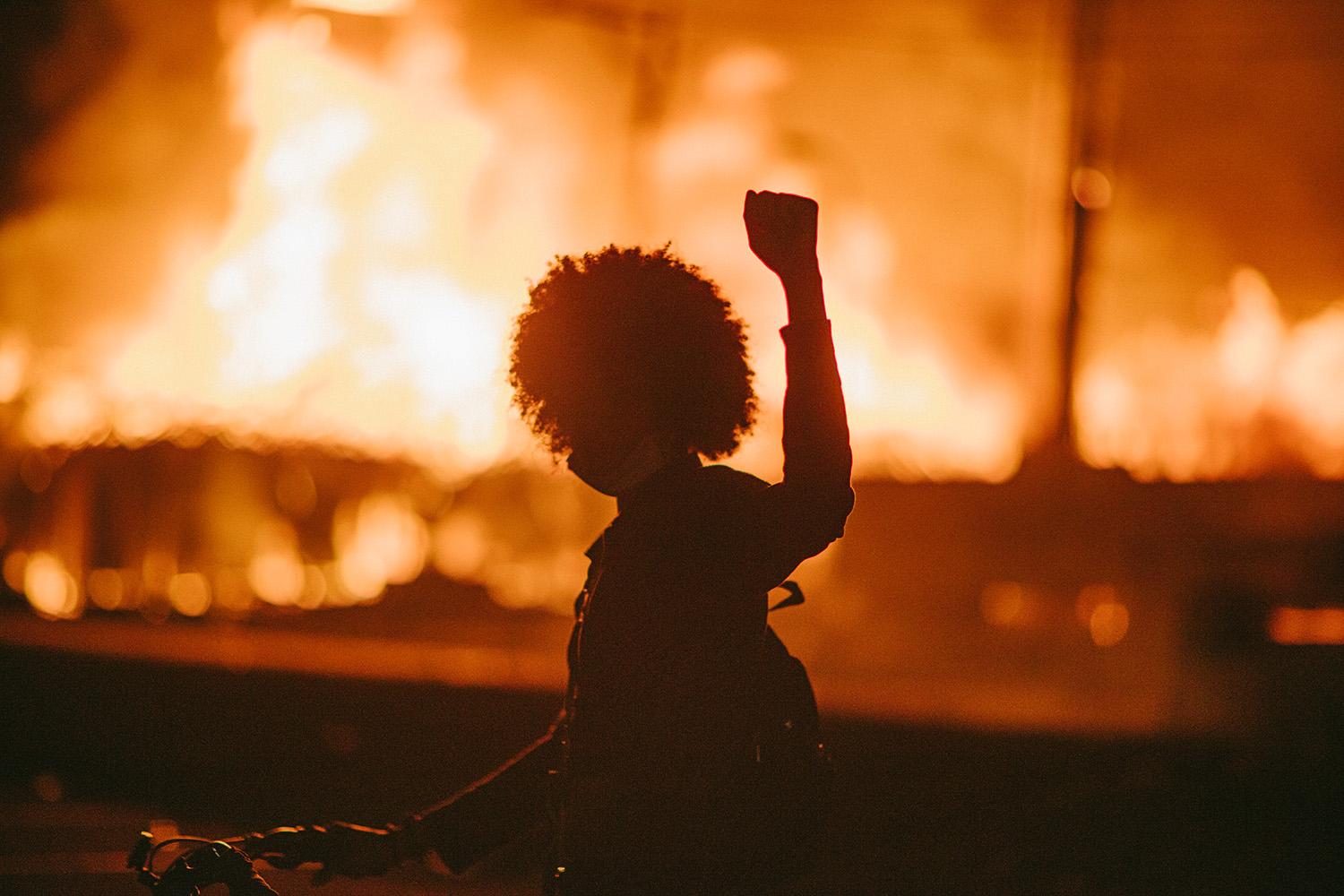
Courtesy the artist
Matsuda: It works how it was designed to work.
Scruggs: Yeah, exactly. That’s why I’m over discussions of reform in journalism, but especially in visual journalism. There needs to be a much bigger conversation about who is crafting those images. Why those images are being crafted. Why certain visual tropes come up. Why certain people have been completely shut out of this industry for decades.
Agboola: At George Floyd’s memorial service, every person doing video was white. A bunch of foreign press was in town. This guy came up to me that looked like he was from a very reputable news station and said, “Hey, who is the dude with the family’s lawyer?” The person he was talking about was Reverend Al Sharpton. If you don’t know who that is, you should not be here. It was such an insult.
Looking around and not seeing very many Black photographers felt very disappointing, because the stories weren’t going to come from the right place. It breaks my heart. I see things through the pain I’m feeling. I put that into my work. I have to make sure when I am shooting to not lose myself. I want an imprint of myself in the photo. To make sure that what I am feeling is conveyed. It is a lot of pain. I haven’t been able to take a breath and cope yet.
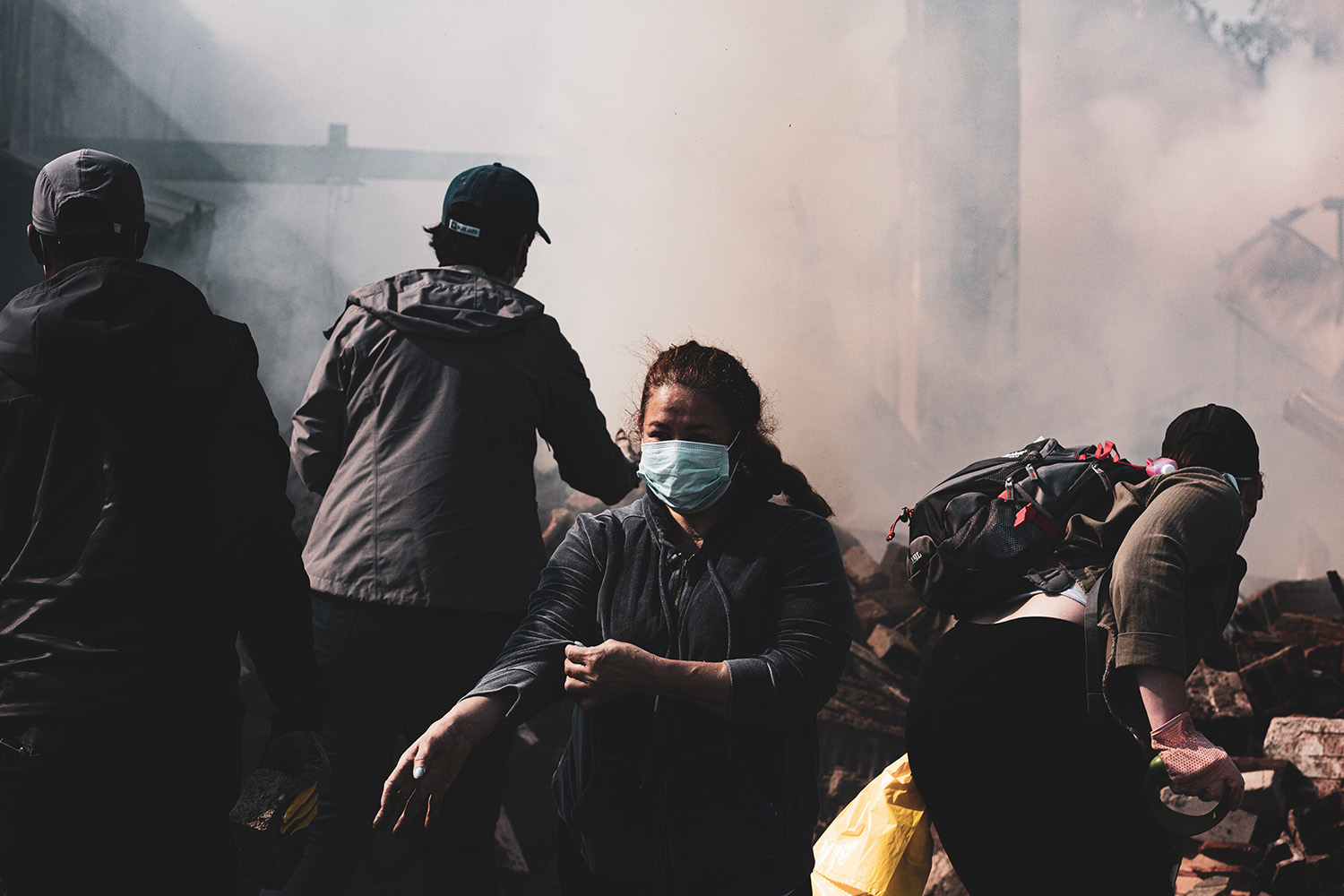
Courtesy the artist
Matsuda: What would you say to non-Black photographers covering this moment?
Brent Lewis: Well, I do think there should be non-Black photographers out there. Black photographers should lead the way, though. It comes down to understanding. Non-Black photographers should be more empathetic. Have conversations and ask why people are out there. People are protesting to have their voices heard. Don’t just point a camera in someone’s face. I’ve heard some photographers are asking for permission at the protests. If it’s a safe moment, have that conversation. It opens up a dialogue. Even to the Black photographers out there, I would say ask those same questions.
One summer back in Chicago, I was taking pictures of these kids playing in this opened fire hydrant. One of them turned to me and said, “Did somebody die?” The only time they see journalists coming into their neighborhood is when someone gets shot. The media shows up when things are on fire. If people actually cared about the Black experience beforehand, we probably wouldn’t be in this position. It wouldn’t feel so invasive either.
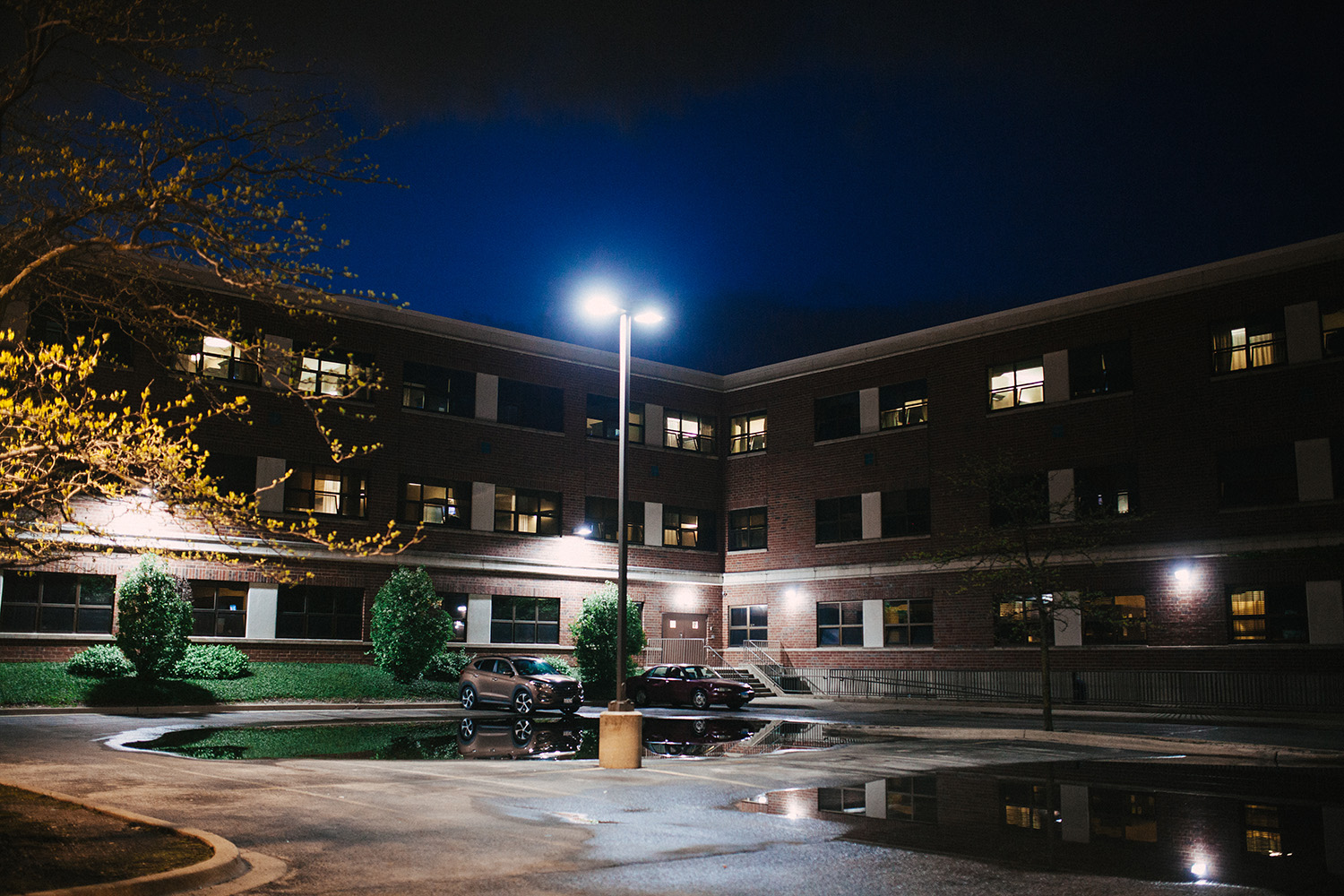
Courtesy the artist for the New York Times
Matsuda: A common refrain I’ve been hearing from non-Black photographers is that they think pictures are objective—they are just photographing what is in front of them. So why does it matter who is taking the picture?
Weatherspoon: Whatever situation I put myself in, I put my full identity in it. That’s being Black. That’s being queer. That’s being a woman. So that all goes into whatever story I’m photographing. If you come to a story from only a gender perspective or a race perspective, it causes mistrust with the people you photograph. Black people are at the center of so much history, but you rarely see Black people, let alone Black women, who are allowed to cover these stories. You have to bring your full identity, your full self, to whatever shoot you’re doing. But you’ll have biases in what you see no matter what.
Scruggs: Objectivity doesn’t exist. You bring all of your lived experiences into whatever you’re doing, whether that’s picking up a pen or a camera. All of your lived experiences affect what you put in a frame and what you keep out of it. What stories you choose to tell and what stories you choose not to tell. The best that we can do is aim to be fair. Tell as complete a story as we can. But objectivity is not a thing. It’s a way for people to hide. It’s a way to avoid having those uncomfortable conversations.
Matsuda: How are you maintaining the energy and strength to keep making these images?
Agboola: I’m not. Today [June 6] is the first day I am taking for myself and not picking up my camera. Today, I want to breathe. Today, I want to acknowledge where I am at emotionally. I haven’t slept this week. I wake up in the middle of the night with sleep paralysis.
In Minneapolis, there have been white supremacists riding around in the middle of the night. Every time I would go outside and hear a loud truck, I ran into the bushes. I couldn’t breathe this week. I was in pain. I couldn’t even feel safe in my home.
Today is the first day where I can assess myself. I need to talk to my therapist. It’s been hard, man, I’m not going to lie. But it’s also been great to see the way Minneapolis has come together in a ridiculous, iconic way. After buildings burnt down, people were out the next morning cleaning it up with shovels and gloves, in the middle of a pandemic. Allowing the anger to go on. They did not even question it. It got me emotional. It was beautiful.
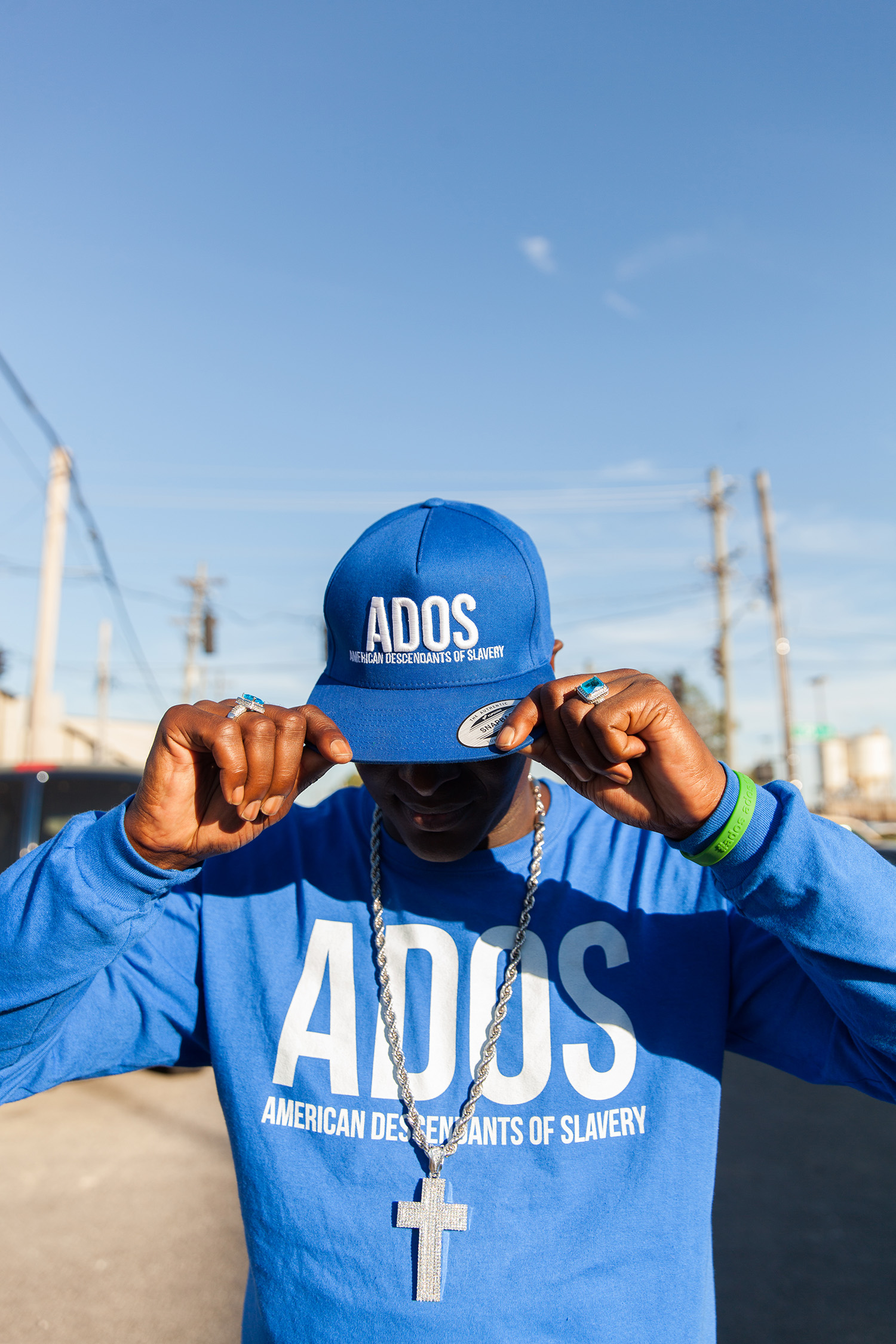
Courtesy the artist for the New York Times
Matsuda: How can photo editors do better?
Weatherspoon: I’m seeing an influx of attention—they want to see more of our work. In a way, it’s a little concerning. Why now? We have been doing this for so long. Why is it now that you want to hear our voices? We have been photographing our joys, our pains, our questions, our everything. You didn’t listen. I question the motive of those who are reaching out to us now.
Matsuda: This interview right now is part of that complex, no doubt.
Weatherspoon: Yeah, let’s be real about that. I hope media outlets, brands, agencies, and galleries understand that we’ve always been out here. People are now starting to catch up on what we’ve been doing. If you decide to hire a Black photographer, make sure you continuously hire them. Don’t give us that line, “We look forward to working with you in the future.” Make it count. None of us are going to be in this for a long time. I can tell you right now. I don’t want to do this for the rest of my life. I do enjoy it, but when it’s my time to sit down, I want to continuously see Black people thriving in this field. Not just now. There’s no excuse for not hiring a Black photographer for any type of story now. Why does it take someone being murdered for us to show our work?
Scruggs: Photo editors need to change who they view as experts. Change who they deem as worthy of getting an assignment to. Just because you aren’t as familiar with someone doesn’t mean that they are not capable of executing an assignment in an accurate and compelling way. There also needs to be a fundamental shift in how photo editors view their jobs. You can’t stop at, “Well this person doesn’t have a lot of experience, so I’m going to go with this white man, because he has twenty years of experience.” Why was that white man given all those opportunities to get twenty years of experience in the first place? You have to be willing to mentor people, and train people, and see that they are getting paid fairly, which is a huge issue in this industry.
I’ve always worked simultaneously between being a photo editor and a freelance photographer. I know firsthand what it is like to front money for travel for an assignment, and then you have to wait three months to get paid back for that expense. If you’re not independently wealthy, how do you make that happen?
What are you doing to make sure freelancers are safe, and paid on time and fairly? Give them the resources and support so they can end up with twenty years of experience.
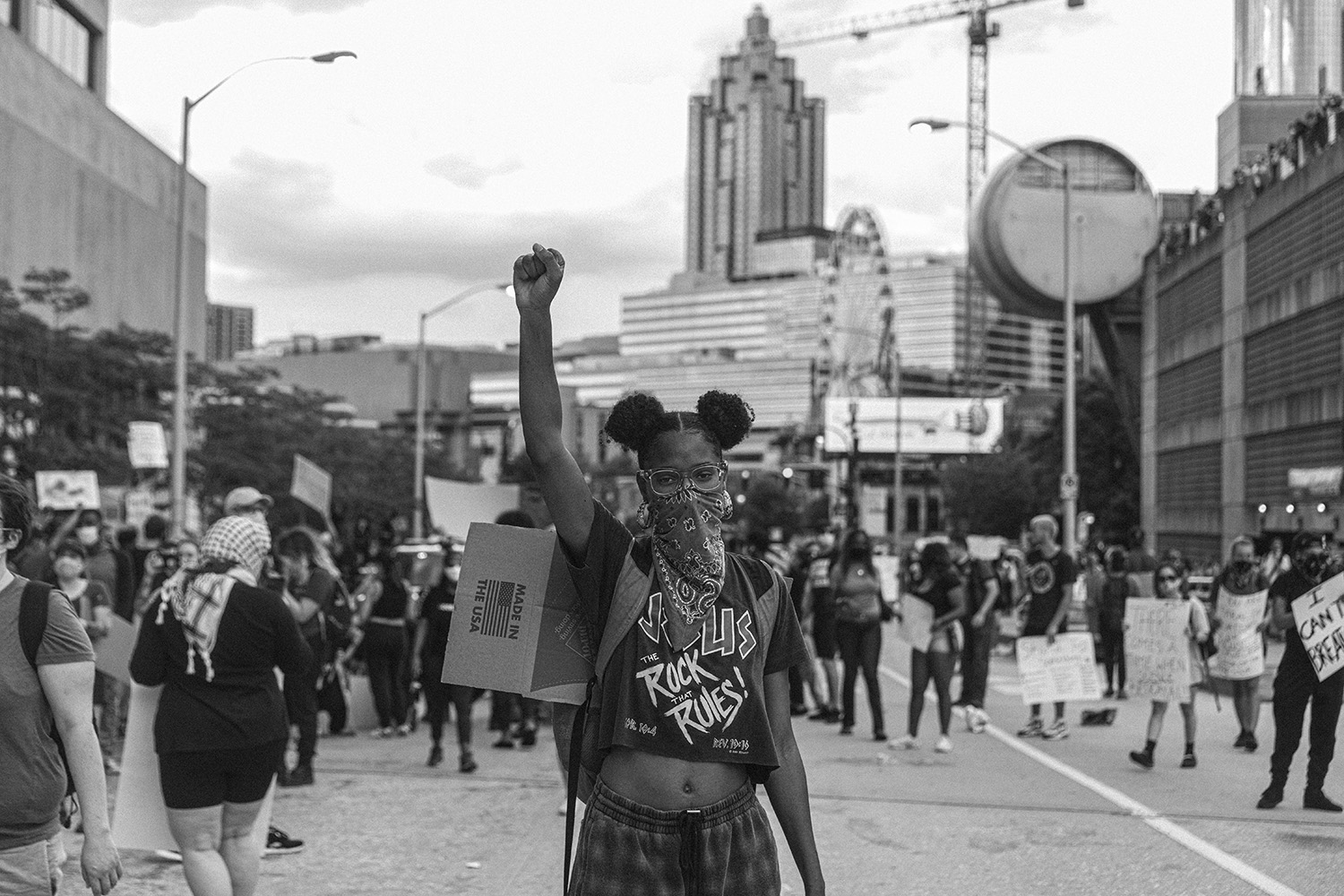
Courtesy the artist
Lewis: I understand things are moving quickly, but I need photo editors to understand that people are protesting four hundred years of history. I am happy to see so many people hiring Black. But don’t hire a Black photographer and say, “Alright, I hired my one Black photographer!”
We have been disadvantaged. Many Black photographers didn’t go to all these workshops or legacy photojournalism schools. They’re just damn good photographers. But many of them don’t know the process, because photo editors have never thought to teach them. Or ask them. Things like FTP transfers, captions, or metadata. Take a second and ask if they have questions about what they need to do. Make sure they read through and understand the documents. Ask if there is something they don’t know. When I was coming up, I wouldn’t ask a damn thing.
It takes a little bit longer for photo editors to do that work, but it pays off. Your workflow becomes better. I’ve let myself down by not asking these questions. It has resulted in unnecessary back-and-forth email conversions and texts, or me writing captions when I was on a deadline. All that would have been alleviated if I said, “Hey, you’ve never worked for the New York Times before. Let’s talk everything through while you’re filing. About what you need to do.” That goes so far. These are skills that photographers can take away. Money is cool, but don’t forget about skills that they can take elsewhere. Photo editors need to do that legwork. Especially right now, when so many photographers are getting their first looks. Organizations like Authority Collective and Diversify Photo have been saying this for years. But you can pick it up right now. Teach.
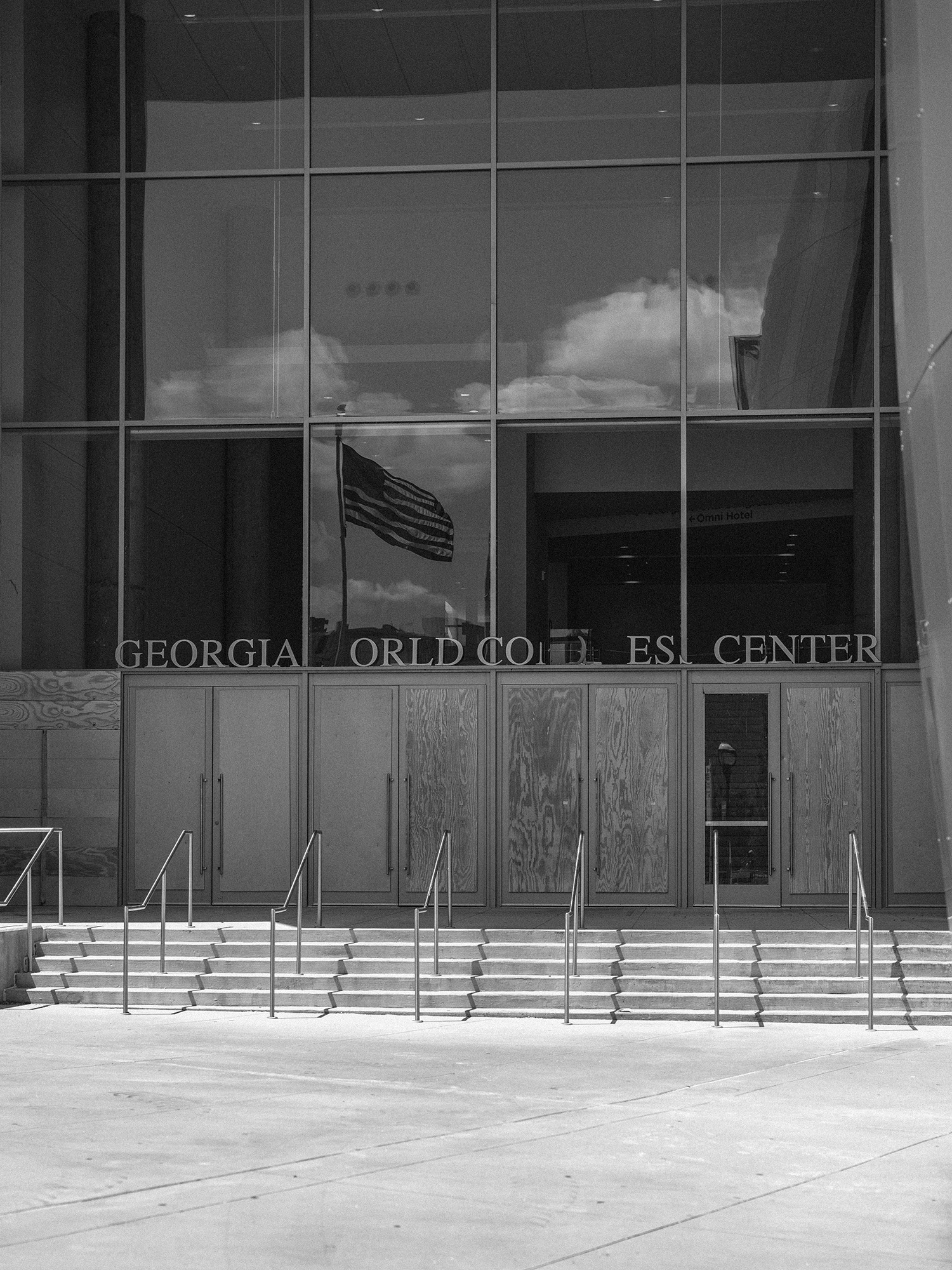
Courtesy the artist
Matsuda: I’ve been spending a lot of time with the work of Angela Davis these past few weeks, and she stresses the importance of critiquing racism and capitalism at the same time. While I agree that we need more Black photographers and photo editors, I am also thinking about how many Black people can’t even afford to get into the industry in the first place because of racial capitalism—to even be part of a shared Google doc of Black photographers. How do we address this structural exclusion?
Scruggs: I’m glad you brought that up, because hiring Black photographers solves only part of the issue. We have to look at this from a systemic level. You can’t redline people and put them in neighborhoods with no resources, no schools, no mental health resources, no grocery stores, no generational wealth, and then compare them to their white counterparts, and tell them to go spend $2,000 on digital camera body, another $2,000 on a laptop, and another $1,300 on lenses. All of that when there is no potable water in the neighborhood either. How do you afford all that to even get started in the industry as a photographer?
The databases [of Black photographers] are great resources, but the problem isn’t just that people didn’t know that there were Black photographers. It’s a good start, but it’s not the full solution. The people in power—people at the leadership level, the publisher level, the corporate level—don’t see us and I don’t think they care. When I say, hire Black photographers, it’s only part of it. Think about how to work in a collaborative way, rather than just an extractive way. Consider the toll that it takes on Black people’s mental health. We need to think about how to really bring people in and make them feel welcome.
Weatherspoon: Economic disparities are certainly a weight on Black photographers since we’re historically denied credit or any funding that would accelerate our business goals. This would make anyone feel defeated, especially when you have White photographers who find you inferior because of what you lack economically. Black creatives are trying to keep up with the world, while trying to find ways to fund our career goals.
As for hiring Black photo editors, it is crucial that we know a job like this exists for us in the first place. Even if you decide to not be a photographer, we have to know that jobs like this exist in newsrooms, publications, and creative spaces.
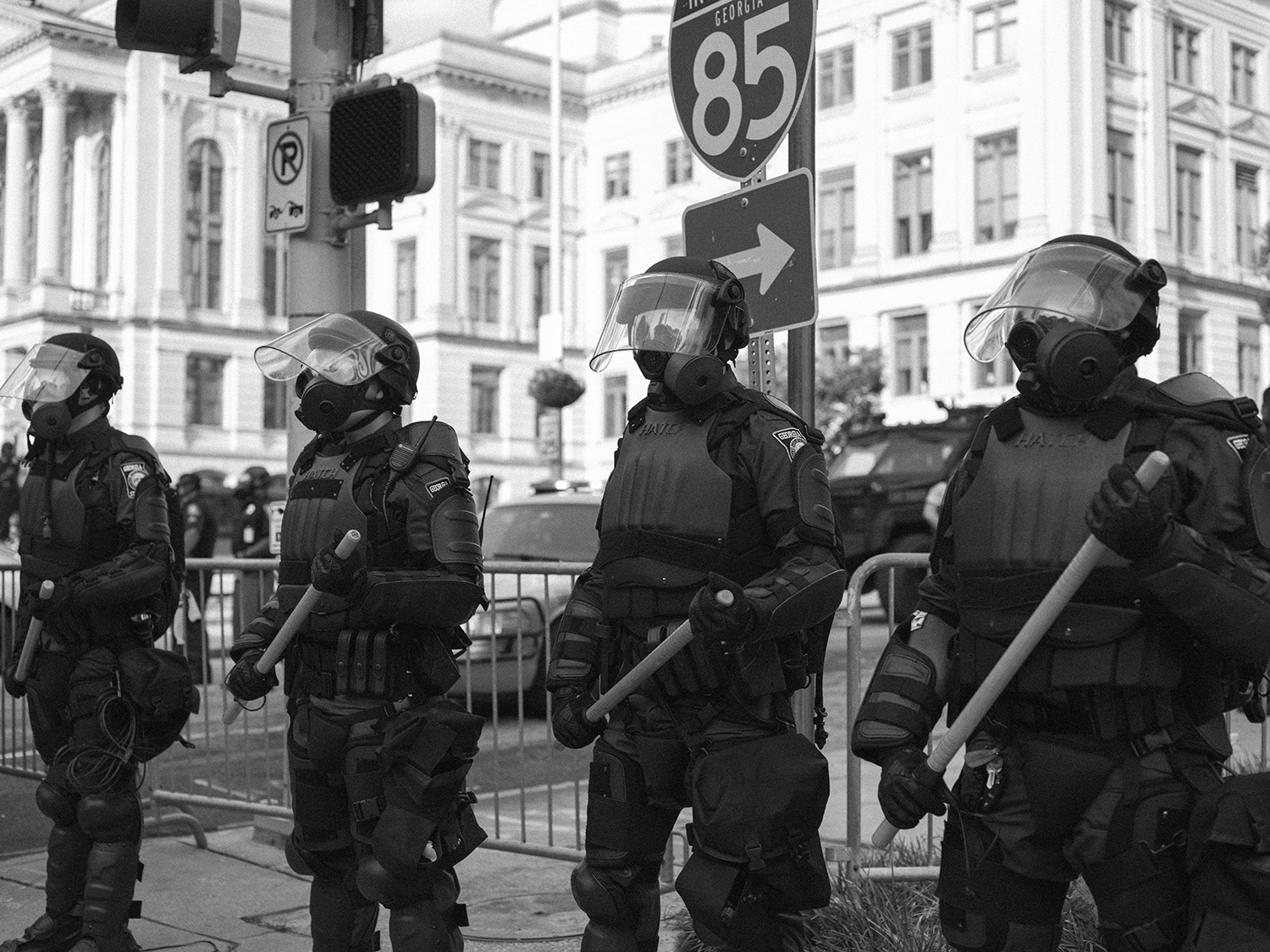
Courtesy the artist
Matsuda: I worry that everything that brands and outlets are doing right now is performative. That there’s a lot of attention now, but what about next month? What does the photography industry need to learn from this moment? What does that look like in the long run?
Scruggs: It requires a fundamental shift in society. The whole reason why there is so much racism, sexism, ageism, classism in the industry is because all of that exists in society. White people especially, but also non-Black people of color need to educate themselves in being anti-racist. Really do that work and don’t ask Black people to hold their hands through it. We’ve been doing that and it’s really exhausting. We need that time to ourselves.
It’s been years, decades, centuries. Photography started out as a tool of white supremacy, and people don’t talk about that. One of the main functions of it was to reinforce slavery and colonialism. I wonder how you use a tool originally created for white supremacy to work against white supremacy? That’s a question that all photographers should be asking themselves, not just Black photographers. Specifically, white people need to have these conversations with other white people. Do not turn to your Black friend. They are probably not even your Black friend—they are your coworker. Don’t say, “How can I help? What can I do?” You need to turn to your white friends and say, “What do we do? Why don’t we know these things? Why have we been avoiding these conversations?” Don’t have a diversity panel. Literally, just hire Black people and people of color.
Lewis: Everyone’s hoping they won’t get dragged. That’s a fact. Sorry, not sorry. The goal is to level the playing field, and to do that we need new voices in here. Not just photographers, but editors, and directors of photography. The biggest takeaway for this in the long term is building relationships. Photo editors reply to people they know faster than to people they don’t know. These relationships are important. Build those relationships. A lot of photographers aren’t going to go to workshops or portfolio reviews or legacy photojournalism schools. But they are damn good. Knock down the whole gatekeeping thing. Open up the gates.
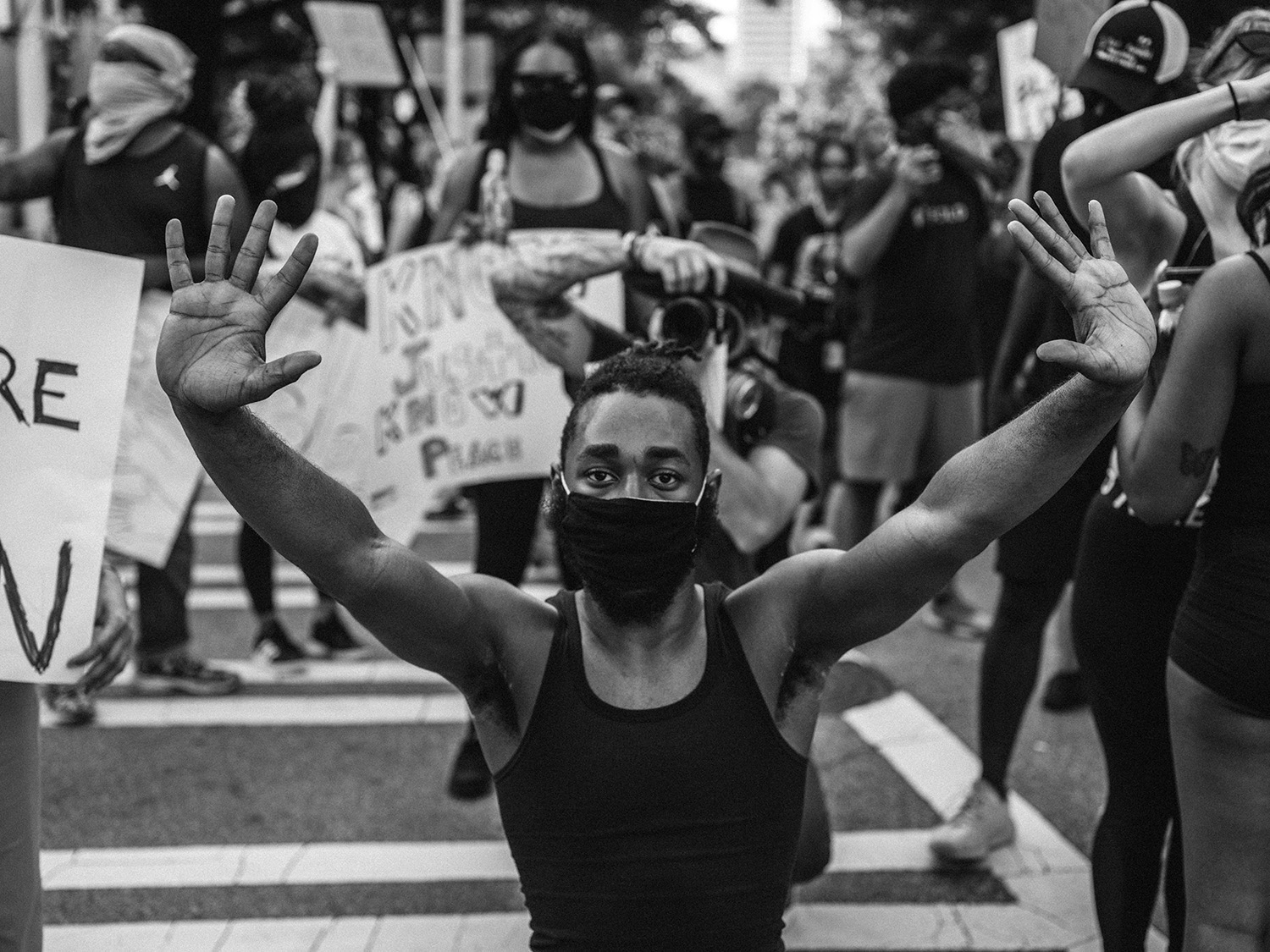
Courtesy the artist
Matsuda: What do you need right now?
Scruggs: Wow, a lot of people don’t really ask that. I would say space. Giving people space to process. There’s a lot going on. Understatement of the year. Give people space to rest, process, be angry, and be sad. I need to have space to feel what I need to feel. I need concrete resources. Mentorships. Money. Fair pay. Historically, Black women are asked to do a lot and shoulder a lot. So I need a real investment. Cash dollars. There was a spreadsheet going around with what people were making in the industry. With only two or three years of experience, people are making three or four times what I’m making. So I need fair pay. Wages. Cash.
Lewis: I need people to care. Don’t do it for likes. Don’t just black out your Instagram. Read. Realize this didn’t start with George Floyd. It goes back four hundred years. Listen to podcasts. Take in everything you can right now. Understand why people are protesting in the middle of a pandemic. That’s how serious it is! People are like, “I’m more likely to die from police violence than I am from a pandemic.” That’s something you need to understand. I need you to look at yourself. You’re stuck in the house. You’re not going anywhere. This is the time to do it!
Weatherspoon: I need sunlight. I need for this bullshit to end. I need people to understand that this issue is not new; it’s always been here. Hopefully we get it right this time. I know we say that every time. We know names like George Floyd, Breonna Taylor, Ahmaud Arbery, Tony McDade, but how many countless names do we not know?
Agboola: Those four officers [responsible for killing George Floyd] need to be charged. There needs to be justice. For me, I need that. All those buildings that burned can be rebuilt; money can be remade. George Floyd is not coming back. As a Black man, I fear for my safety every day. When I get pulled over by police, my body turns into fear and I wonder if this is the end. So as a Black person, that is traumatic. I am dealing with that trauma. You have to listen to Black people. Black lives matter. If there is a protest tomorrow, I will be there. But I want to come home.
